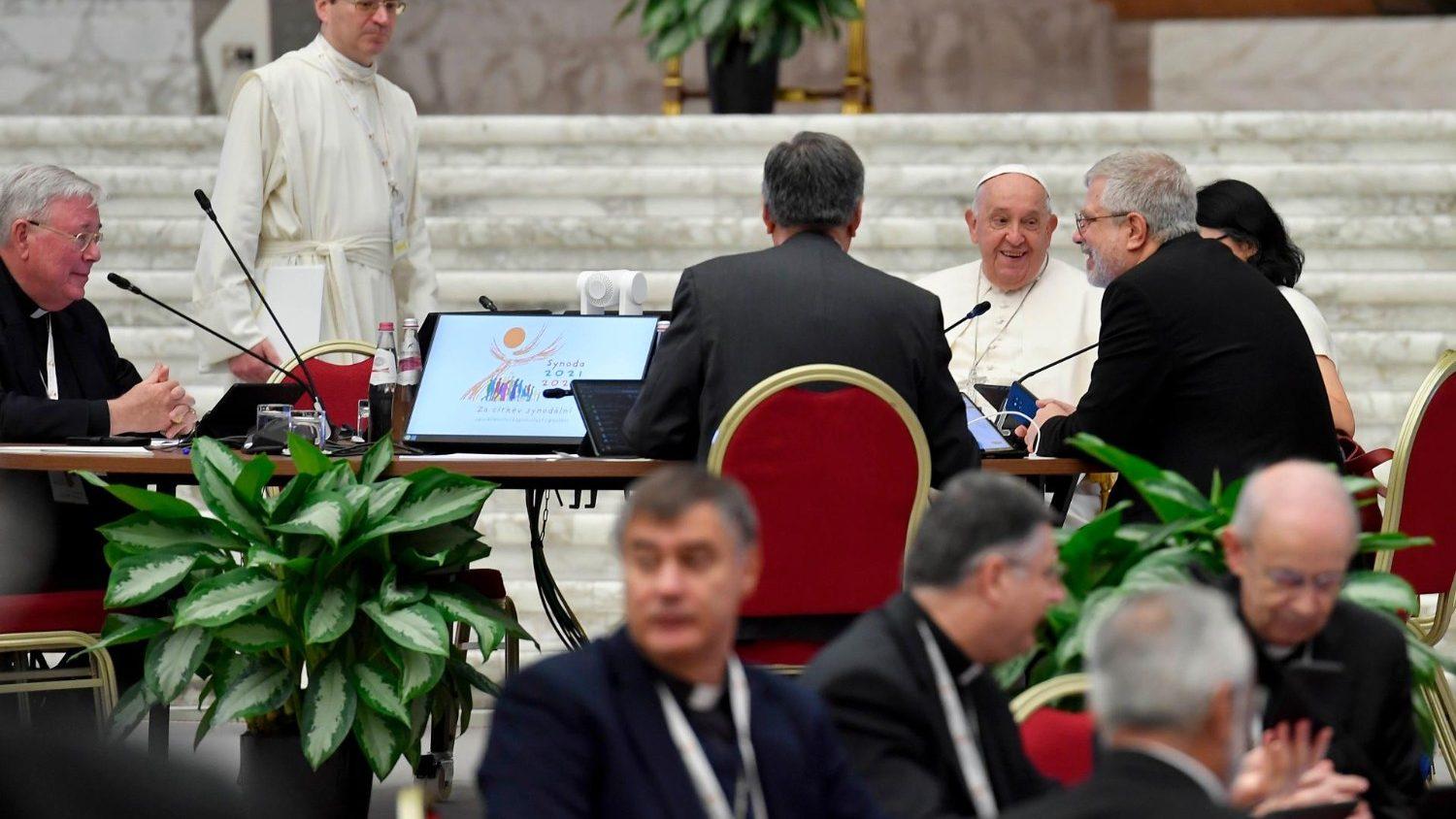MUMBAI, India – A Catholic religious sister from India says the Synod on Synodality must remember the poor, migrants, and refugees “must always be very close to the Church.”
Sister Maria Nirmalini, the Superior General of the Apostolic Carmel Congregation, said the first session of synod on Synodality was “both a spiritual experience and a communal experience.”
She told Crux the sessions called “Conversations in the Spirit” was a way around the table during the synod wherein participants “listened respectfully, dialogue and discerned,” adding that synodality is also “a circular form of leadership.”
“Firstly, as Leader of my Congregation I had the opportunity to share with all my sisters and suggest some ways of practising synodality in their communities. I was also able to share with religious groups in some states,” Nirmalini said.
The Apostolic Carmel Congregation has 1,500 members, and Nirmalini was also the president of Conference of Religious India until May 2024, and is now President of the Conference of Religious Women India, which has over 100,000 Religious members – the largest in the world.
“Listening to the Holy Spirit and to each other was a unique experience,” Nirmalini told Crux.
“As President of the Conference and with the National Assembly that was held in Bangalore between May 13-17. There were close to 650 Major Superiors – women and men. My team had planned well the synodal approach and each member took the responsibility of organizing. My main task was to hold the synodal style during the Assembly. So, everyone present had the taste of synod as the seating for conversation was around the table. It was very meaningful as all present expressed and that they would take home with them the experience of this assembly,” she explained.
She said this year’s Synod on Synodality is “once again moments of prayer and Listening around the table,” and the Synod’s Instrumentum Laboris was the focus of “listening, dialogue and discernment.”
The Instrumentum Laboris is the official working document of the Synod, issued months before the Synod on July 9.
“Topics centering around foundations, relations, pathways and places has been the journey so far. We are reflecting on the Domestic Local Church and Parish communities. How can we all collaborate and make this journey of togetherness taking with us all people of God,” she told Crux.
The religious sister also said Pope Francis “always leads the way with the vulnerable and the poor.”
She said the poor, migrants, refugees must always be very close to the Church, “and we all should join hands in sharing.”
“Firstly, we must listen to their stories with empathy. We must pray for these intentions also where the people are affected by war and violence and pray for peace. Reflect that their lives must affect our living and like Jesus reach out in kindness and compassion,” Nirmalini said.
“It is not something with one act of charity will be over, but it is an ongoing journey, and it must help all of us to look beyond and think of these people and be grateful to God for what we have and share with those do not have. Caring for them is also in listening and accompaniment and respecting the dignity of every human person,” she continued.
Nirmalini also praised the fact the Synod on Synodality is including the participation of non-bishops – who are usually part of an event that is historically the “Synod of Bishops.”
“The very fact that women, and young have been part of the synod, it has already shown the way that to build the Church all are part of this journey and we must walk together,” she told Crux.
“Certainly, there has been great emphasis on lay participation, young and involvement of women for a synodal Church,” she said.














